Welcome back to the MTG Underground.
Today we bring you a guest post from Magnus De Laval, the face and voice of Oldschool MTG. Though it has been too long since I brought you words from my fingers, a crime I will remedy soon, it is a pleasure to bring you something equally brilliant, if not superior on every level. I promise you will not be disappointed.
If you wandered in too early, you may have seen an alternate cut of this piece. I spent a little too much time with this piece in my possession before posting it, and became a little too enamored. As such, I began dressing it up in my clothes and shifting its pieces around, unintentionally sculpting it into my likeness. And while my face may be a beautiful sight for your heathen eyes, it should not deny you the true form of this masterpiece.
So I have set things right.
I give you the Last Bike from Gothenburg in its raw, unadulterated glory:
“It is not the critic who counts; not the man who points out how the strong man stumbles, or where the doer of deeds could have done them better. The credit belongs to the man who is actually in the arena, whose face is marred by dust and sweat and blood; who strives valiantly; who errs, who comes short again and again, because there is no effort without error and shortcoming.”
– Theodore Roosevelt
Well said. But erring is embarrassing, shortcoming is lame, and effort takes effort. So we opt for defenses of lethargy; painting in black and white, taking comfort in being part of whatever, and embracing ideals of the people whom accept the person we show them. Looking for pride or connection in whatever opinion that might be mustered. As long as we don’t make anything for others to critique our creativity is beyond reproach. “This is not what I would have created, and therefore it sucks. Therefore you suck.”
We let the time pass in our dark playground. We tell ourselves other people are worse.
I could just tell you they are, and stop at that. I could trash the design of the Amonkhet Invocations. Whine about the latest B&R update. #ImpeachTrump or #BlameWorth. But this is the MtgUnderground. You didn’t come here expecting instant gratification in 140 characters. This is a place where we dig for deeper ore. Today, we talk about our shame.
 Every now and then, when I brush my teeth, I think about Henrik. Henrik was the kind of friend who would visit unannounced while I was young enough to still live with my parents. He kept coming by the parents to say hi even after I’d moved. Some years back, we were very close. I introduced him to Violent Italy and the exploitation films of the 70s and 80s while he introduced me to the music of Mayhem, Satyricon and Burzum. We spent many days discussion the merits of de Sade’s 120 Days of Sodom compared to Pasolini’s interpretation in Salo. We tried to beat Battletoads on NES in two-player mode. He visited when I worked in San Francisco and we had our own tree in a park in Gothenburg where we used to sit and drink low-alcohol beer. We tried to live out the angst, joy and decadence of the 20-somethings together.
Every now and then, when I brush my teeth, I think about Henrik. Henrik was the kind of friend who would visit unannounced while I was young enough to still live with my parents. He kept coming by the parents to say hi even after I’d moved. Some years back, we were very close. I introduced him to Violent Italy and the exploitation films of the 70s and 80s while he introduced me to the music of Mayhem, Satyricon and Burzum. We spent many days discussion the merits of de Sade’s 120 Days of Sodom compared to Pasolini’s interpretation in Salo. We tried to beat Battletoads on NES in two-player mode. He visited when I worked in San Francisco and we had our own tree in a park in Gothenburg where we used to sit and drink low-alcohol beer. We tried to live out the angst, joy and decadence of the 20-somethings together.
Henrik (t.l.) and I, 2005.
I lived a little more central than him in Gothenburg, in a tiny student apartment. As such, he frequently spent the night at my couch when the evening’s refreshments became to refreshing. But he didn’t want to keep a toothbrush at my place.
At one time or another we discussed what to do if we found a djinn of three wishes. Henrik didn’t crave what most people did. One of his wishes was to never have to brush his teeth again. He felt that he lost four minutes each day brushing. It was time that went spoiled, never used for something creative or inspiring. Henrik wanted to paint, read and make music, and the utterly useless minutes he wasted brushing his teeth felt like a thorn. So instead of having a toothbrush at my place, I had bought a box of floss for him. At the very least, it was something different to do with those wasted minutes.

I hate that this is a eulogy. Given that Djinn, the 7,000 minutes I’ve spent brushing my teeth since I last saw him amounts to five days I could have done something else with. But I have five years he don’t. Sometimes, the oral cleaning ritual becomes a reminder. Are my extra minutes spent well? Am I wasting my time?
There was a moment at the funeral that sticks with me like a slab of tar in my lungs. I was talking to Henrik’s dad, a good man I had come to know well over the years. He had spent the last few years working in Abu Dhabi and it had been almost half a decade since we saw each other. “Long time since last. You’ve stayed away from us in Gothenburg for quite some time.”
I realized what my remark implied moments after I said it, seeing the pale look in his face. By the poor choice of words I implied that he had failed to be there during the last years, maybe even that he was a failure as a father. The shame looked almost unbearable. He did not speak his eulogy at funeral later, but rather let the priest read it. I hope that was his plan all along.

Shame is a feeling most of us are familiar with. Fear of belittling or a creeping feeling that we’re never enough whatever. Never good/ perfect/ certain/ safe/ smart/ successful/ interesting/ lovable enough. Did you experience that raging angst hangover for whatever you did last night? Maybe the classic “walk of shame” after a regrettable hookup or that you did something that was a little too stupid while drunk. Or maybe you just took the hard choice rather than the easy one, disrupted the status quo, and exposed yourself to haters.

Shame is rooted in a painful comparison of the self’s actions with the self’s standards; or from the self’s state of being with the ideal social context’s standards. Unlike guilt, which is a fairly healthy feeling and can be defined as regret and responsibility for one’s actions, shame is a painful feeling about oneself as a person. There’s no action needed to trigger shame, simply existing can be enough.
Shame sucks. We learn to do everything to avoid it. We build defenses to not risk our status among our group or start measuring our worthiness in likes and retweets. Instead of accepting vulnerability and focusing on shame resilience, often we opt for shields. If we can cheat the scales, or avoid measuring at all, maybe we don’t have to dare greatly or put ourselves in positions where we might see ourselves as failures or be ridiculed.

Hey, this is starting out fun, right? Lot’s of Magic and all that. One might ask how the fuck this might relate to anything? Well, I guess that if we manage to own our self insights, we could become better at handling tilts and bad beats. Also, if we become slightly more wholehearted people, it will be nicer to play with us. Haters and entitled barns aren’t exactly the pride of the Magic community. In the next few paragraphs I’ll be talking about shame, vulnerability armors and theories on using daring to build shame resilience. This is by no means a field I master, but I think I have enough book smarts to rant about my personal experiences. If you want out and spend the evening on something more entertaining, now is as good a time as any. Might recommend checking out the sweet Man With a Movie Camera instead. One of the greatest movies Soviet produced in the entire 1920s, and that includes Battleship Potemkin. Download it for free at the Internet Archive.
Rated 8th greatest film of all time in the most recent Sight & Sound poll. Also, it has no actors
OK. For those of you not waist deep into Soviet experimental film by now; the most common vulnerability armors are often considered to be foreboding joy, perfectionism and numbing. Let’s start from the top.

Picture a happy person in some setting. Celebrating with friends, water skiing with a topless swimsuit model on their back or whatever comes to mind. Now picture an unhappy person. May be someone alone or at loss, sitting in squalor or lying in he dark. Happiness takes effort, misery is easy. It often just takes doing nothing. But for many having stuff to lose feels like the first step towards losing them. “Someone could spill beer on my Lotus.”
When we lose the willingness to be vulnerable, joy becomes something we approach with foreboding. In a culture of scarcity where we’re never enough, happiness is a trap. Things are going great, and it’s terrible. We aren’t entitled to real joy and as soon as the world finds out disasters will creep around the corner. Acknowledging that you love your girlfriend sets you up for heartbreak. Truly enjoying your job will make it harder when you get fired or they reorganize. Picture the image of the parent watching their sleeping child, suddenly becoming overwhelmed by a feeling of dread as images of car crashes and terrorist attacks flood their mind.

When building Magic decks, we talk about “Magical Christmas Land”. It is mostly applied as criticism against perceived inconsistency in decks, pointing out that in the unlikely scenario that you always have variance on you side, always draw correctly, and you face no disruption from the opponent, the deck will work spectacularly. In Magical Christmas Land your theory crafted Land Equilibrium deck is the greatest pile of cardboard ever assembled. In Magical Christmas Land we put emphasis on best case scenarios and dismiss the more realistic outcomes.
“Keep.”
Foreboding joy is the polar opposite. Here, the shame induced by having good things happening to us compulsively make us plan for the worst. We picture the disasters and try to control the possible outcomes, constantly mindful of possible calamities and telling ourselves that if it happens, we’ll be prepared, and if it doesn’t, we’ll just be pleasantly surprised. But instead of being in control of the things we can’t control we reach a state of perpetual disappointment. As shame research professor Brené Brown at the University of Houston put the mindset: “It’s easier to live disappointed than it is to feel disappointed. It feels more vulnerable to dip in and out of disappointment than to just set up camp there. You sacrifice joy, but you suffer less pain.”

About a year ago my fiancée came home after four months in South Sudan with Doctors without Borders. The months leading up to her departure had been taxing with our reality changing almost weekly. By the end of September, after a lot of back and forth, it looked like there finally was a date and a destination for her assignment; the conflict in Crimea. Then, just a few days before departure, things changed again. I think Iraq was on the table, maybe Nigeria, perhaps Afghanistan. Assignments spanning four months, six months, one year. At one point in November I almost started crying just from the fatigue. When she finally did depart for Malakal in South Sudan I felt fear for the first time in years. People around her, MSF staff included, were killed. The food, or lack thereof, wasted her. A bullet flew through her tent and the camp was burned. But she came back and I’d never been so joyous to see anyone. Life was awesome.
Shortly thereafter dread and foreboding crept up like spiders on my back.

It was too good, and I didn’t deserve it. I’d recently been promoted at work, I started to feel at home in Oslo, and I was in the best relationship of my life. So I braced for impact. I pictured worst-case scenarios and piled up on jealousy. And it felt shameful for me to worry about the future implications of a joyous life when she was days or weeks away from an African tribal war.
About a month after she came home, I found myself in the Bardenas Reales, a remote part of the Spanish badlands. In an open tent in the sunny wastes I started talking to a Swedish woman in her late 40s. I’d never seen her before, but she felt whole-hearted and she wanted to listen to my whine. I told her about the fear of loss that had crept up on me since Øyann came home and that I didn’t sleep so well these days.
She told me that I shouldn’t worry about losing it. “Because you will lose it. You will lose everything. It is only a matter of time. Eventually you will even lose your own life. Be grateful for what you have.” I asked about her own story, and she told me.

She said she had celebrated the Christmas holidays with her family in Thailand in 2004. And that they were there when the Indian Ocean tsunami struck. It killed her husband and kids, and she was left to survive alone. All her worries about her kids and her family’s future hadn’t helped her. She became suicidal and depressed. Eventually she managed to focus her toughs. She went to India to study yoga. And now she lived, and was able enjoy life. She was grateful for what she had.
Of course she was right. I had known it all along, but somehow needed an unknown sober outsider to confirm it and listen to my shameful confession. Practice gratitude. Be fucking grateful.
This is in line with what the research says as well. To feel unconditional joy we need to practice gratitude. Don’t take what you have for granted – celebrate it.
In the grander scheme of things, when we look at joy as a booth camp preparing us for disaster we diminish ourselves. It feels vulnerable to lean into joy, but if we manage to give in to those moments we will build resilience and cultivate self-worth. Joy becomes a part of who we are, and when bad things eventually do happen, we are stronger.

Another common shield against vulnerability is perfectionism. It is the belief that if we do things perfect and look perfect, we can minimize judgment and shame.
Some people have hinted that the mindset “I am what I accomplish and how well I accomplish it” can be dangerous, but I think that is going a bit of the course. In my mind (and according to many psychologists), what you actually do is most definitely a very important part of who you are. The issue with perfectionism is that it’s about perception rather than motivation. It is a never-ending hustle for likes – “what do they think?” – rather than a more healthy striving for improvement. According to Dr. Brown, most perfectionists grew up being praised for achievements like grades or rule following and adopted a belief system where any failure of deeds would be interpreted as failures of self. As a result, the fear of making mistakes and not living up to impossible standards keep perfectionists away from the arena where actual striving takes place and we can grow from our mistakes. Perfectionism is not a way to avoid shame, it is a way to avoid daring. It is a form of shame itself; “This is my fault. I’m feeling this way because I’m not good enough”.

Being stuck in a perfectionist mindset is a great excuse to avoid finishing projects. “Le mieux est l’ennemi du bien” as the good Voltaire said. And even if we don’t agree that it’s the enemy of good (as history has showed with the good and simultaneously perfect movie Man with a Movie Camera), perfect is at the very least the enemy of done. I mean, as I type right now, I loathe this blog post. I’ve been thinking about writing something profound about shame since new year, and I’ve simply not managed to finish anything as my ravings are so far from stellar. If I wouldn’t settle for this to less than perfect you wouldn’t be reading these words. A 20 minute jog is better than a marathon you’ll never run, as I’m sure someone once said.
Perfectionism can be pretty rough even if you do start to create something. The feeling that you’re not delivering anything good even when other people seem to appreciate your work is one of the most common worries among the IT professionals I’ve been mentoring in the last year. It’s often referred to as impostor syndrome. I had it real bad myself some years ago. I was worried anyone at work would “find me out” and realize that I was a horrible consultant that didn’t deliver anything of tangible value. Some years later it seemed to me that this affected around 90% of all the people I worked with, with the last few mostly appearing to be truly clueless or narcissistic.
I wish to share a particularly poignant story from Neil Gaiman’s blog. He writes:
Some years ago, I was lucky enough invited to a gathering of great and good people: artists and scientists, writers and discoverers of things. And I felt that at any moment they would realise that I didn’t qualify to be there, among these people who had really done things.
On my second or third night there, I was standing at the back of the hall, while a musical entertainment happened, and I started talking to a very nice, polite, elderly gentleman about several things, including our shared first name. And then he pointed to the hall of people, and said words to the effect of, “I just look at all these people, and I think, what the heck am I doing here? They’ve made amazing things. I just went where I was sent.”
And I said, “Yes. But you were the first man on the moon. I think that counts for something.”
And I felt a bit better. Because if Neil Armstrong felt like an imposter, maybe everyone did. Maybe there weren’t any grown-ups, only people who had worked hard and also got lucky and were slightly out of their depth, all of us doing the best job we could, which is all we can really hope for.
Dr. Kristin Neff at the University of Texas echoes the same ideas in her book Self-Compassion. She points to self-kindness, mindfulness and recognizing common humanity as paths to accept the cracks in our skin. Suffering and feeling of inadequacy are part of the shared human experience. Balance negative emotions so that they are neither suppressed nor exaggerated. Be understanding towards yourself when you fail rather than ignoring the pain or being to harsh with the self-criticism.
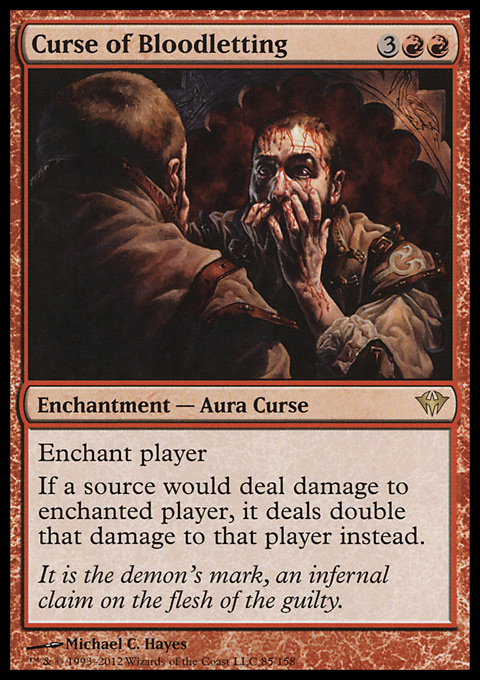
Or as Andrea Scher put it; “Good enough is really fucking good.”
Sidenote: Understanding feelings is hard, and writing about it is still far from my comfort zone. I didn’t grow a beard and learn how to shoot a grenade launcher to have feelings. But when we look at the data unearthed by psychology professors, it prompts us to take the discussions more seriously and open-minded that we might want to default to otherwise. It’s still OK to get a burning rage whenever someone posts pictures like this on social media though:

OK, let’s move on from perfectionism and hit on a personal favorite among the vulnerability armors; a shield so easy to carry that picking it up is no harder than downing a bottle of Jack: Numbing!

Numbing isn’t just about drinking away the sorrows though. If you’re stressed out about your academic prowess but still spend all your evenings playing World of Warcraft instead of studying, you are probably numbing. If you think that you’re not actually lovable nor fit for long-term relations but chase one-night stands to compensate, that might not help.

Numbing is about ignoring or “taking the edge off” unpleasant feelings in a way that in no way improves the situation or helps you evolve. It is very often habit forming and hard to break out from.
I have a story. In early 2008, I was in a fairly harsh breakup. I handled it like any respectable 24-year old would; by drinking until the sun rose every day for the next week or so. It could be worth noting that the sun rises around 9 am during the Swedish winter. Eventually I realized that I was a student and couldn’t afford the alcohol I needed to stay constantly drunk, and sleeping until seven in the evening interfered with, well, everything else. But I couldn’t handle the feelings of the breakup either. So I went to school. Then I stayed at school until midnight, and went home to sleep. I did this every day. The 10 minute walk between my dorm and the campus was the by far worst part of the day. It was the only time when I had to be alone with my thoughts. I needed to keep busy.
As far as vices go, I guess hanging out at school beats drinking two gallons of beer a day. But for me, it was just a cheaper substitute to keep ignoring my feelings and what was going on. It solved nothing, and six months later my ex and I were back together. Being the same immature persons, having learned exactly zero shits since the breakup. We stayed together for another year, probably at least four times longer than we should have, until I eventually started caring and managed to make a clean cut.
We are desperate to feel less or more of something. Brené Brown suggest that the need for numbing comes from a combination of shame, anxiety and disconnection. “Anxiety with shame rising. Disconnection with shame rising. Anxiety and disconnection with shame rising.”
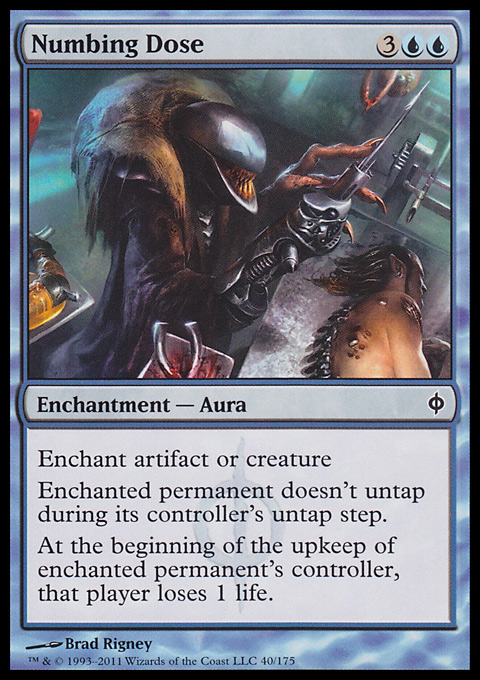
So what to do? Personally, I think I’ve gotten kinda good at leaning into the discomfort of hard emotions over the last few years. I wont accept feeling apathy, lethargy, disconnection nor anxiety without digging deep into them anymore. That helps a lot in speeding up the process. Other common suggestions revolve around how to actually feel feelings, and staying mindful about numbing behaviors.
The last one is hard. When do use become abuse? I refuse to be 100% professional all the time. There will be times when I’ll ignore some proverbial task at hand and opt to drink stout and watch Aamir Khan movies instead.
Probably his fifth best after Three Idiots, Dangal, Lagaan and Dhoom 3.
I will get drunk every now and then. Perhaps too often. I care much about what people say on social media and get a boost whenever someone comments on something I’ve written. I used to check my phone last thing before I fell asleep and first thing in the morning to get that sweet rage-hit from whatever ridiculous headline happened to be the flavor of the day. But lest I get an intervention, I don’t believe my infatuation with 93/94 or Bollywood movies borders on abuse.
The bad numbing comes when I sit down and play 2048 until I get the 65536 tile. When drinking keeps me bored. When something I define as a hobby or “down time” starts to interfere with my actual relationships and goals, which causes me to feel shame about wasting my time so I dive back into wasting even more time procrastinating on YouTube to numb those feelings. When human relationships gets taxing and a ringing phone becomes a stress factor. It can be a vicious cycle in the dark playground. If we do this long enough we’ll soon be closing in on depression territory. And that’s a whole other bag of snakes.
Anxiety is a part of western culture. Anxiety sells. If the news didn’t worry you, it wouldn’t feel as urgent to click the headlines. The G7 leaders fail to handle the refugee crisis in Italy and Europe will burn. The US president is a joke and the country crumbles. North Korean leadership is crazy and will blow up Seoul. Read the stories. Keep up.

It’s easy to interpret the work cycle and social responsibilities the same way. Someone responded to your tweet? Better react quickly. Five minutes here and five minutes there add up to around four hours and fifteen minutes a day on the smartphone for the average US user. When we go home from work, we rarely go home completely. The mails still ping our phones and we need to be alert if the boss calls. These are disconnected relationships and the idea of being constantly available might give some instant gratification but breeds anxiety. We don’t really need to check Facebook more than three or four times a day after all. When was the last time we accepted being bored?
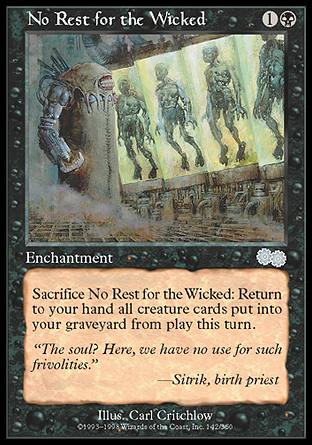
This could be a whole other blog post. Sustainability, procrastination, “fear of missing out” and all that. The quick answer to avoid shame by numbing however doesn’t seem to be to find a way to live with the routines we’ve built. Instead, we could just change the way we live. We would say that to an alcoholic, so why not to someone with a bad case of FoMO.
Rather than changing old habits it’s easier to just make ones. I think I first got that from Timothy McVey’s magnum opus The Inner Game of Tennis. Instead of saying that you should stop checking twitter as soon as you wake up, maybe create a new morning routine where you do Yoga or some shit. Maybe have your phone turned off until 9 AM.

Vulnerability shields doesn’t end with the trinity of foreboding, perfectionism and numbing of course. There are many other strategies. I could tell you about a friend whom without apparent hesitation could confront casual acquaintances and share grueling stories. Smashing through the looking glass with harsh anecdotes that demanded sympathy. But I don’t think she ever was vulnerable. She was still the hero in her tales, and it was the world that was mad. She used vulnerability. Her real self was still far below the surface, only on the most rare occasion showing its head, and the sorrows she shared were mostly meant for mere sympathy. Cautiously or not she would put up a cracked facade so people wouldn’t dig further and get to know the real her. Some people refer to this shield as the “smash and grab”. She gratefully survived her suicide attempts.
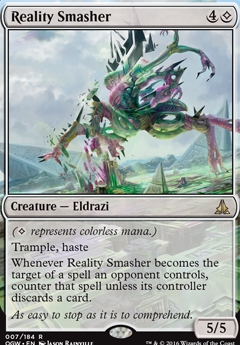
Or maybe you are the guy that keeps insisting that the world is divided into mutually exclusive groups of assholes and suckers, and that the people not landing firmly in the former viking camp are bound to be victims in the latter. Focusing so much on not being a loser that you forget to think about what you’re doing. Sitting at the PPTQ among the lesser players, dying to win but somehow having a nagging feeling that you don’t really enjoy the game. Feelings are suppressed and a vague definition about not being a victim or loser comes of utter importance. Defining self-worth from not being a victim is rarely a good long-time plan, and the only thing dividing people into assholes and suckers do is make you an asshole. And what the fuck is so important to win anyway? When we sacrifice vulnerability we also sacrifice the ability to have important things we could lose. Connection and love becomes nigh impossible. (As related trivia of sorts, people like Léon Wurmser and Glen Gabbard have suggested that narcissistic personality disorder is related to defenses against shame as well. But clinical disorders are beyond the scope and above my skill level here.)

Of course there’s a line between rhyme and reason here as well. Given certain environments and tangible goals, there are cases where winning-vs-losing rhetoric could work. Many of us get damn pumped to sell some real estate after hearing Alec Baldwin’s rant in Glengarry Glenn Ross. Where my Phil Dunphey blazer at?
Others could interpret the scene as a cut case of “viking or victim”-mentality and Baldwin’s character being a douche of epic proportions. “Fuck that guy.” But then we’re not really watching the same clip. I see an aggressive guy with an unorthodox coaching technique trying to hammer a point and push the team to finally create something. Hopefully by feeding of his energy, but worst case by triggering them to show him off and prove him wrong. Expectation management, results, company culture, and all that. It was not all that uncommon in the military. Then again, it is no secret that too much of that kind of culture can be toxic for an individual’s sense of self-worth, and that more of the US soldiers in Afghanistan committed suicide than died in combat. Same with the US effort in the war on Isis, and I could go on. As one psychologist who recently left the air force noted “Service members are, simply put, more capable of killing themselves by sheer consequence of their professional training”. And shame is a very strong predictor to PTSD. So even if you admit that the speak has an impressive style and a decent point, going full Baldwin is a mixed bag. And never be a hater with nothing to coach.
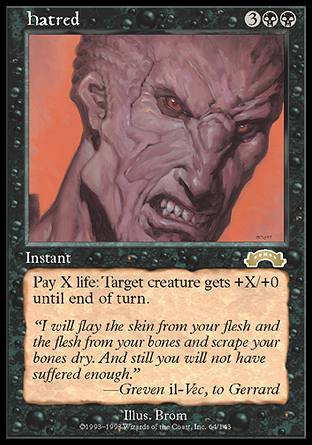
Hating and public shaming are easier now than ever. These are the tribulations of daring. Having had a fairly popular Magic blog for a few years, I’ve seen a decent share of angry rants my way. There were many times when I just wanted to stop writing. To stop creating and fly under the radar is a comfortable, though miserable, way to live.
Engineer and brilliant tech satirist Jenn Schiffer stated “if you are a content creator, remember that you are more important than your audience” at a talk during the XOXO Festival. At the very least, I would say that you are more important than any whiners lacking constructed criticism in your audience. “Don’t try to win over the haters; you’re not the jackass whisperer.”
Also don’t call people beta cucks or send them rape threats. That’s just stupid.

We’re all nerds here. We all have guilty pleasures. People may not walk by and spit on our cards like in the mid 90s anymore, but I’m sure most of us feel the tingling of nerd shame every now and then. Does your spouse know how much your cards actually cost? Would you write that Magic is one of your hobbies on your Tinder profile? I’m not saying that we need to share our free time with everybody, but if we do feel ashamed of our hobbies in some way we should own up to it. Otherwise we might try to shield it by being assholes to other players or become unable to play for the joy of the game. And it is a damn glorious game.
I might have lost a bunch of you along the way down here. This post is unconventional and by no means perfect. But, then again, if ‘perfect’ were my definition of done I would never finish anything. To those of you who just scrolled down looking for deck lists or pictures of sweet cards, I’ll humor with a couple of Juzams beating down on an Aisling Leprechaun:
“Fuck that Leprechaun anyway.” -The Librarian of Leng
And I’ll offer my three-step tl;dr: Try to live whole-heartedly. Build up shame resilience. Do shit. Also, there’s a link to a weird experimental Soviet movie from the mid 20s somewhere in first quarter of the text.
I’d like to thank Ben Perry, the Librarian, for lending me his soapbox again. It’s a great privilege. And I’ll shamelessly grab the opportunity to express my thanks to all the wonderful people who have contributed with guest post on the oldschoolmtg blog during the last couple of months. If anyone of you guys would like me to write something for you, I’d be happy to try and scrape something together. Possibly with even more Magic than this one 😉
We started this with the first half of a famous Theodore Roosevelt quote. Let’s wrap up with the second half of that quote:
“But who does actually strive to do the deeds; who knows great enthusiasms, the great devotions; who spends himself in a worthy cause; who at the best knows in the end the triumph of high achievement, and who at the worst, if he fails, at least fails while daring greatly, so that his place shall never be with those cold and timid souls who neither know victory nor defeat.”
-Mg
I cannot express my gratitude for being able to share this with you.
For the last week I have been in possession of it, savoring it, preparing it, driving its author mad as he is forced to wonder what the hell I am doing with it. For which I can offer no explanation.
I would to apologize to those who missed it in its pure form because they danced in too soon. I hope you have taken the time to make a second run, it is well worth your time. And beyond that, I would like to apologize to its Author for making a simple gesture into a complicated development. What can I say? Chaos runs through my blood.
For those who wish to use my platform for your works, do not let this deter you. I am happy to host any piece in the spirit of the underground, and I promise to try to treat it gently. And fear not, I will be back soon with a piece of my own. I have been writing, despite not having shared anything here. There are things in the works, and they will prove worth the wait.
Until next time,
Love Not Law,
-The Librarian






